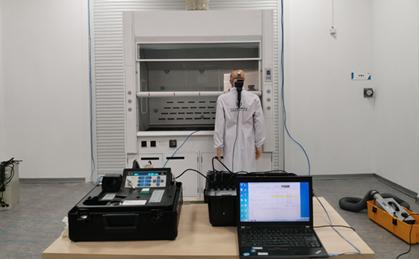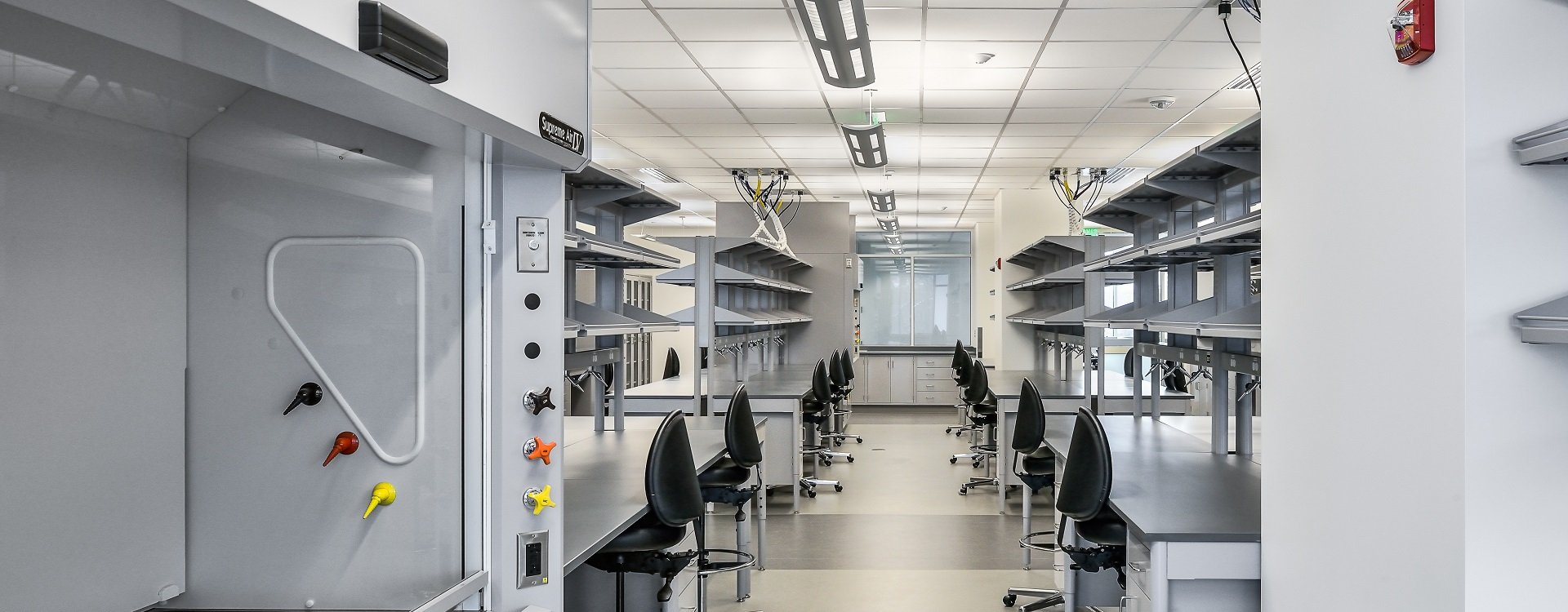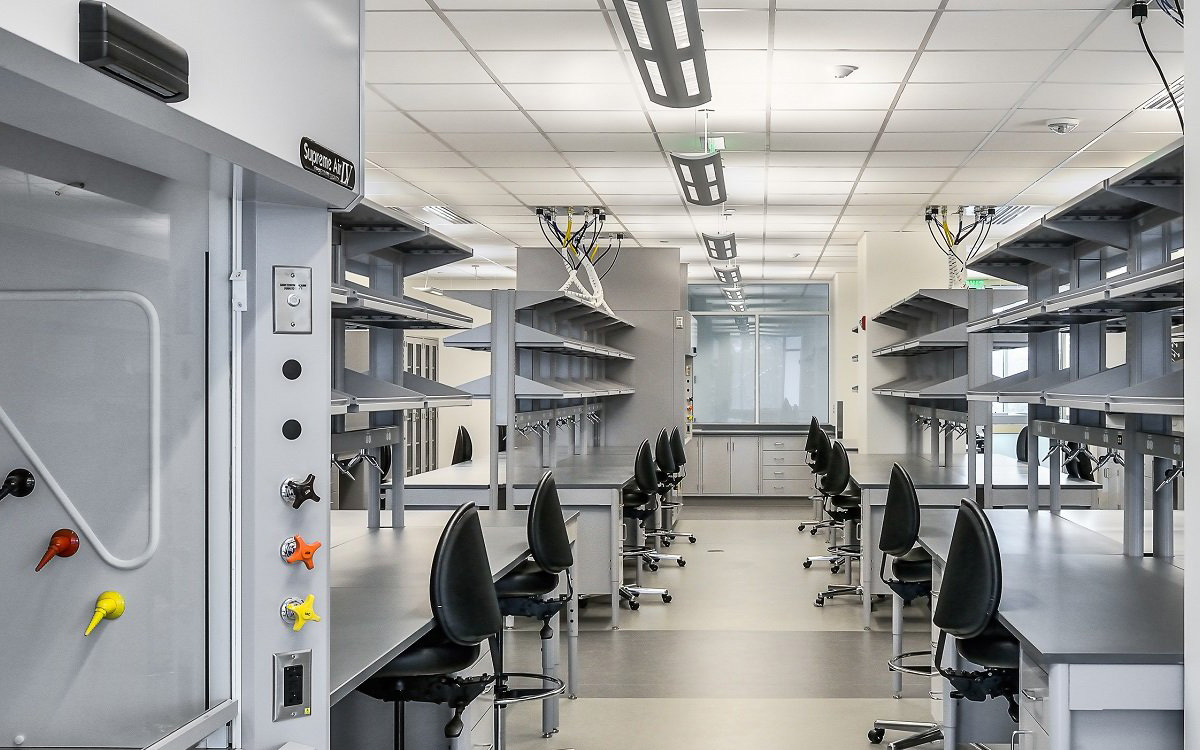Why you need to test
People working in laboratories rely on the correct performance of fume hoods as their primary means of protection from excessive exposure to harmful airborne chemicals produced in scientific research.
The role of the fume hood is to capture, contain, dilute and expel contaminants. When the fume hood does not work properly, pollutants can leak, which means that pollutants spill into the laboratory, which is not only dangerous but also harmful to health.

Fume hood leaks lead to fires, explosions and laboratory air contamination
Fume hood systems are installed to protect people, so proper testing is essential to ensure proper performance before people put their health at risk with hazardous chemicals. The results of hundreds of performance tests conducted by ICT2 indicate that 15 to 30 percent of the hoods do not meet the performance standards described in ANSI/AIHA/ASSP Z9.5-2012 laboratory ventilation.
There are many factors that affect the safety performance, usually related to the aerodynamic design of the fume hood, the operation of the air flow system, the configuration of the laboratory environment, and the working habits of the fume hood user. Laboratory fume hood systems have become increasingly complex with the introduction of unique features and variable air volume (VAV) systems. Therefore, to know whether the fume hood is operating normally, we need to look at it from a holistic perspective. We need to test all the components to verify that they perform as instructed, and the effective way to be sure is to test them in the lab where they are installed.
Service Projects
ICT2 is one of the few laboratory ventilation safety testing institutions in China, which has CMA and CNAS qualifications, and can provide ventilation safety and fume hood performance testing services:
| ASHRAE 110-2016 |
| ASHREA110-AMTest |
 |
|
AM(As Manufactured) Test is done in laboratories with near-perfect conditions. The purpose of this test is to allow users or purchasers to compare different suppliers' fume hoods. By every vendor's tests, you can see how well the fume hood is designed and how it performs compared to other facilities. You can also compare energy costs of using fume hoods. |
| ASHREA110-AITest |
 |
|
AI(As Installed) Test is a test to a no-load fume hood before users use it. This test is carried out in a field lab, which is a kind of test form. If you do an AM test to a fume hood, then you can compare its results to the AI test's. If the performance exists significant difference, it indicates the building HVAC or laboratory ventilation system has problems to be solved. No matter what reason it is, this test will verify if the fume hood fuction is acceptable. Once the fume hood has an acceptable AI test result, we now know the lab is totally safe for users. All new-built labs should conduct AI test to verify the entire system is fuctioning as designed and the safety level is good. |
| ASHREA110-AU Test |
 |
|
AU(As Used) Test is a test for the using fume hood. The test is carried out in a field lab and is usually done in situation with normal equipment. If we already have acceptable AM and AI test reports, we are now testing users' work influence to performance. In AU test, we often find that fume hoods fail up to an acceptable standard is the result of lab ventilation system changed. These systems are very complex, which perform as designed under scheduled maintenance. At other times, it's just operational practice that can be corrected. No matter what reason it is, this test will verify if the fume hood performance is acceptable. |
| EN 14175 |
| Part 4 On-site Test |
 |
|
Part 4 On-site Test is a test for fume hoods before users use them or when users using them. The test is carried out in the field laboratory, and usually be finished with normal equipment in place. |
| Part 3 Type Test |
 |
|
Part 3 Type Test is done in laboratories with near-perfect conditions. The purpose of this test is to allow users or purchasers to compare different suppliers' fume hoods. By every vendor's tests, you can see how well the fume hood is designed and how it performs compared to other facilities. You can also compare energy costs of using fume hoods. |
| JG/T 222-2007 |
| JG/T222-2007 Test |
 |
|
This test focuses on VFC fitted fume hood. The test is done in the standable test laboratory, aiming to find out how fume hood control pollution. Beacuse the variable air volume device is installed, the impact factor is more. The result reflects overall performance of the variable air volume device and the fume hood. |
| JB/T 6412-1999 |
| JB/T 6412-1999 Test |
 |
|
This standard specifies the type, basic parameters and size of fume hoods, technical requirements, test methods, inspection rules and marking, packaging and storage. It is suitable for fume hoods made by factories and local exhaust hoods in industrial ventilation systems. The standard is the revision for ZB J72 049-90 "Exhaust Cabinet Type and Basic parameters", JB/T 5150-91 "Exhaust cabinet Test Method" and JB/T 6412-92 "Exhaust cabinet Technical Conditions". |




